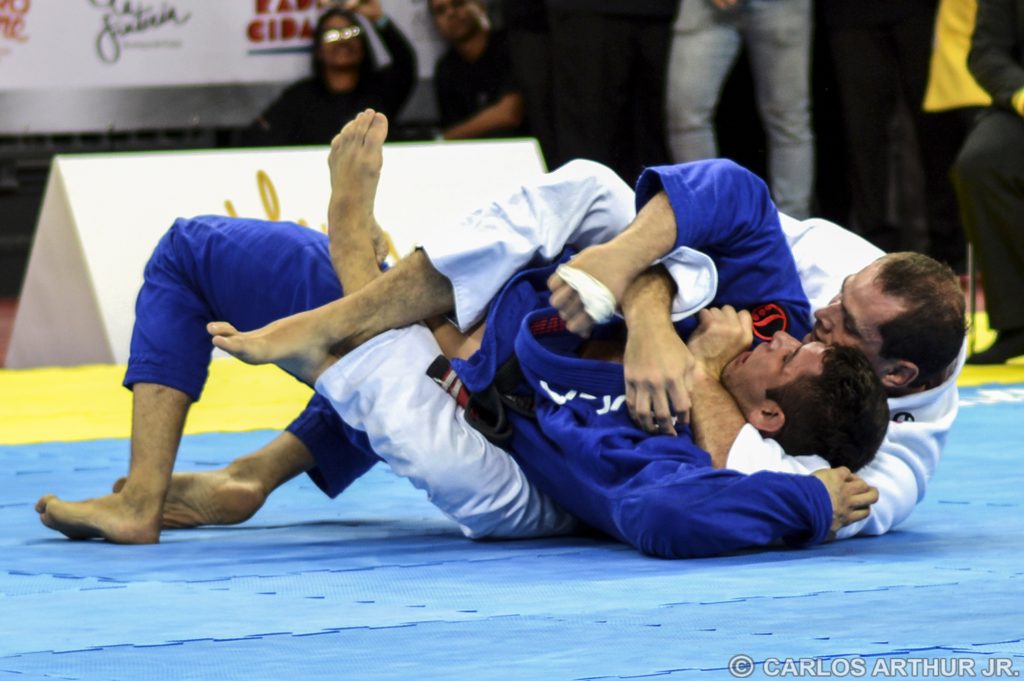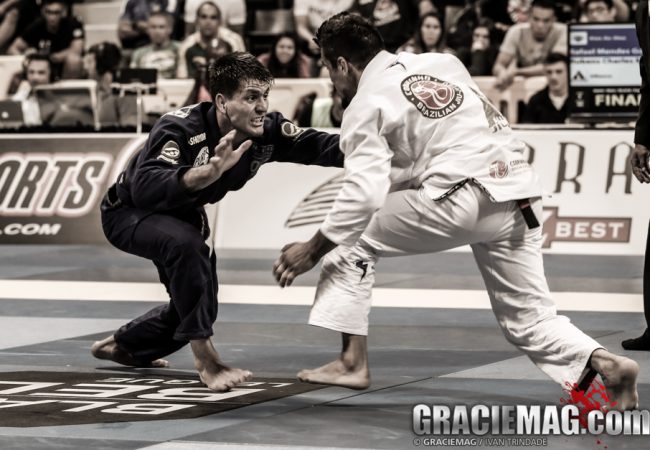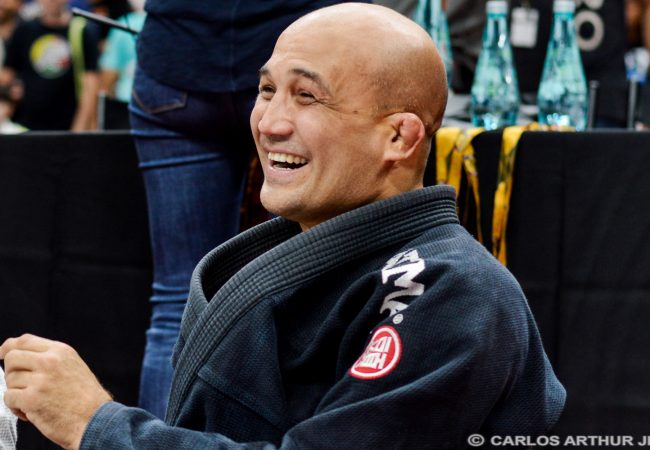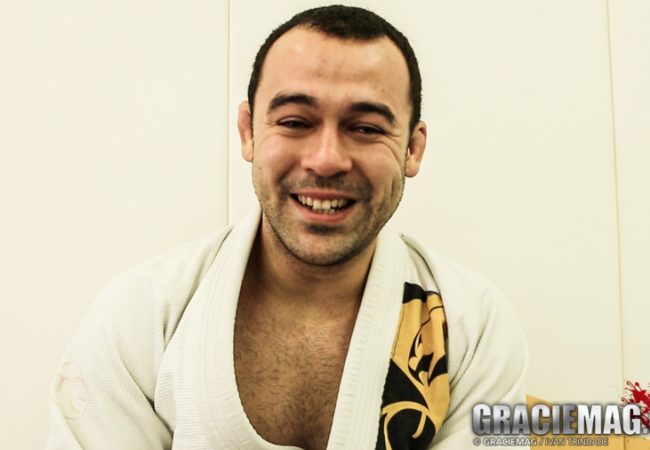
On Buchecha’s back, Roger adjusts the winning choke. Carlos Arthur Jr.
The legendary Roger Gracie, 36, is satisfied with his legacy as a professional fighter and now only wants to teach in his seminars and gyms spread around London. Recently Graciemag had the opportunity to walk around Rio with Roger after his stunning final match — a win over Marcus Buchecha in the Gracie Pro superfight.
Roger again proved to be a normal guy who shows a picture of his children on his phone, goes out with friends, trains and replenishes his energy with a big cup of açaí and a plate of cheese tapioca. So what made him the greatest BJJ competitor in recent history? Well, read on, won’t you?
GRACIEMAG: What is the biggest lesson that your career teaches the BJJ community?
ROGER GRACIE: I think, one about the importance of constancy in training. There’s no way around it: if you wanna be good, you have to train hard — that is, with the toughest guys at your gym. They hardly get there who run away from the toughest rolls or refrain from facing the toughest opponents of their division at tournaments. But “training hard,” mind you, does not mean training to get wrecked. One must train with intelligence. I don’t believe in preparing for a challenge overnight.
I have friends who go a month without training, or even longer, and, when they have a fight scheduled, they try to make up for it by getting wrecked in training, reaching their limit. To me that shortens the athlete’s life, and harms them technically as well. I strive to train every day, for an hour, and I’m satisfied. Of course there are times you’re travelling, or need to be away, but four times a week is alright. Not to mention that, if I go more than a week without practicing BJJ, I can kill a man! [Laughs.] You get in a bad mood, nervous… When I go without training, the pain gets worse too — shoulder, knee… With this method of mine, of always training for an hour, my body has never complained, and I have never needed surgery.
How much did it bother you to read that you were the underdog against Buchecha, as was the opinion of many outlets before the July fight?
Me, the underdog… It was nice to show those people were wrong, right? They thought I was old and washed up, but in truth what happened was that I stopped competing early, to invest in MMA. And I never stopped training, studying and following BJJ.
But let’s be real: your performance at that first Metamoris against Marcus Buchecha was not among your best. People didn’t remember that you were sick then, and had barely trained.
And that’s not all. On top of catching a virosis close to the fight, I was in the worst stage of my life in BJJ. I don’t know what it was — maybe due to being a bit removed from the gi to hone my boxing, — but my jiu-jitsu was horrible. As I rolled with my students, I’d feel difficulties I had never felt. Then I went to train with Victor Estima in England, him much lighter than me, and I quickly tapped to a choke. I was thinking, “What the hell?” Then I went to train with his fellow middleweight Otavio Sousa at GB: not only was I not able to pass guard, but I kept getting swept all the time. I didn’t understand what was happening to me, but that’s when the secret comes in, you know? You can’t stay down. Never giving up; not letting the bad performance torment you. And showing up the next day, continuing training. In some time I regained my old technical form, and the right timing for the positions came back, as did my confidence.
Many thought Buchecha would take you down, after the takedowns he doled out at the 2017 Worlds.
I trusted my standup training, but I also thought that was possible. [Laughs.] I had put it in my head that he might take me down and land on top. I was psychologically prepared to land under him. One must always have a plan-B, be prepared for the bad scenarios. That’s why I have practiced defense so much throughout my life and still do — guard recovery, escape from side control, back defense, triangle defense…
What is the biggest sin a young, ambitious fighter can make?
To copy a bunch of positions off YouTube and not practice the basic. That may be the kids’ biggest mistake these days — they get excited by the berimbolo and such, and forget the rest.
What do you want from life starting now?
I want to be a healthy former competitor, keeping up with my training sessions and packed schools, and many people benefiting from BJJ, as was the case with me.
—
For Roger’s advice on how to adjust the armbar from closed guard, you can go right here.





